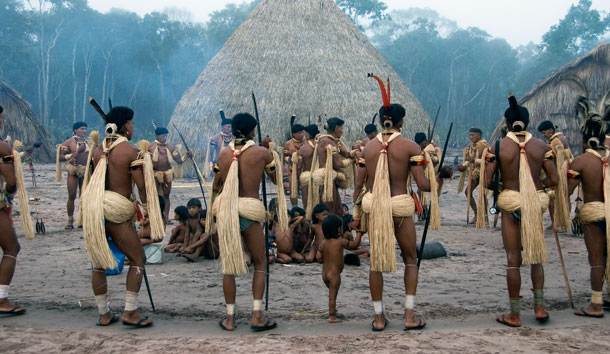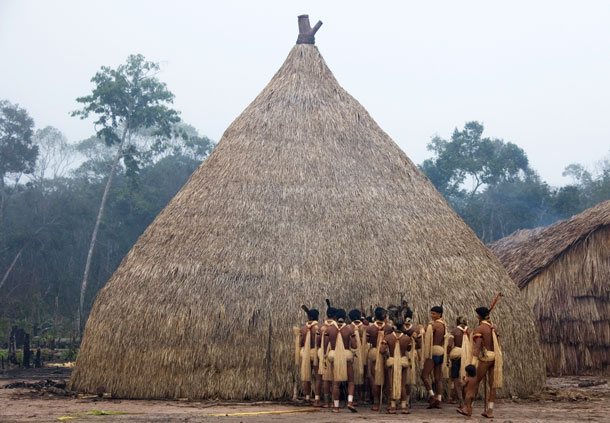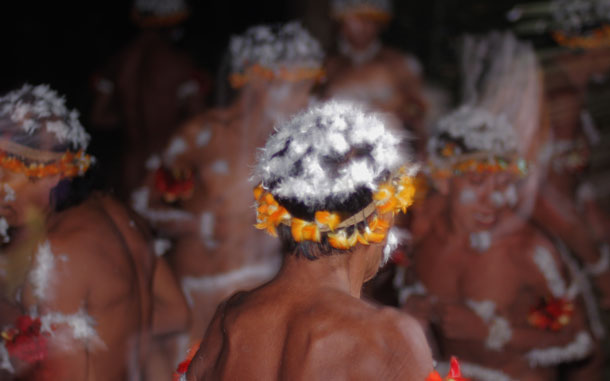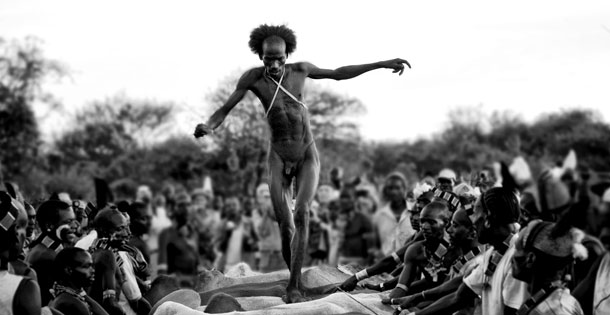

LONDON – “We sing with different voices, but we are singing about the same Earth”, states Davi Kopenawa, a Yanomami shaman.
As thousands of revelers bask in the sun at Nevada’s Burning Man festival, and London’s streets recover from thousands more dancing to the rhythms of Notting Hill Carnival, Survival International has published an online photographic gallery showing how many tribal peoples live their life through ritual and festivals.
Survival’s new photographic gallery features unique insights into tribal festivals held in honor of the lands that sustain them and the spirits that watch over them, but also highlights some of the threats facing tribal peoples today as they are driven off their ancestral lands.
The gallery features, among others, the four-month long Yãkwa fishing ritual of Brazil’s Enawene Nawe tribe, during which food is exchanged between the tribe and the subterranean spirits; the sacrificial and bountiful harvest festival of the Dongria Kondh in India, when a holy man runs over hot coals; and vibrant dance rituals such the Bushmen’s trance dance in southern Africa, which generates a boiling energy amongst the dancers.

Survival’s gallery also shows how in East Africa young Maasai boys turn into men at the e unoto ceremony; and how Ethiopia’s Hamar men demonstrate their courage and strength by running over a line of cattle four timesbefore they can be married.

But when tribal peoples are evicted from their homes and their lands are destroyed in the name of ‘progress’, as they have done for centuries, they don’t only lose their livelihoods, but also their identity as a people, which is reflected in their festivals.
Brazil’s Awá have become known as Earth’s most threatened tribe as their rainforest is disappearing faster than in any other indigenous area in the Brazilian Amazon and they face attacks by illegal loggers when they go out to hunt in the forest; while the Dongria Kondh have been fighting against an open-pit bauxite mine on their sacred Niyamgiri Hills for nearly a decade.


As festivals are celebrated throughout the world, tribal peoples require the support of governments and individuals to protect their lands and to recognize their land rights. Survival International has supported tribal peoples’ struggles for the rights to their land for over forty years.
[SlideDeck2 id=30713 iframe=1]













